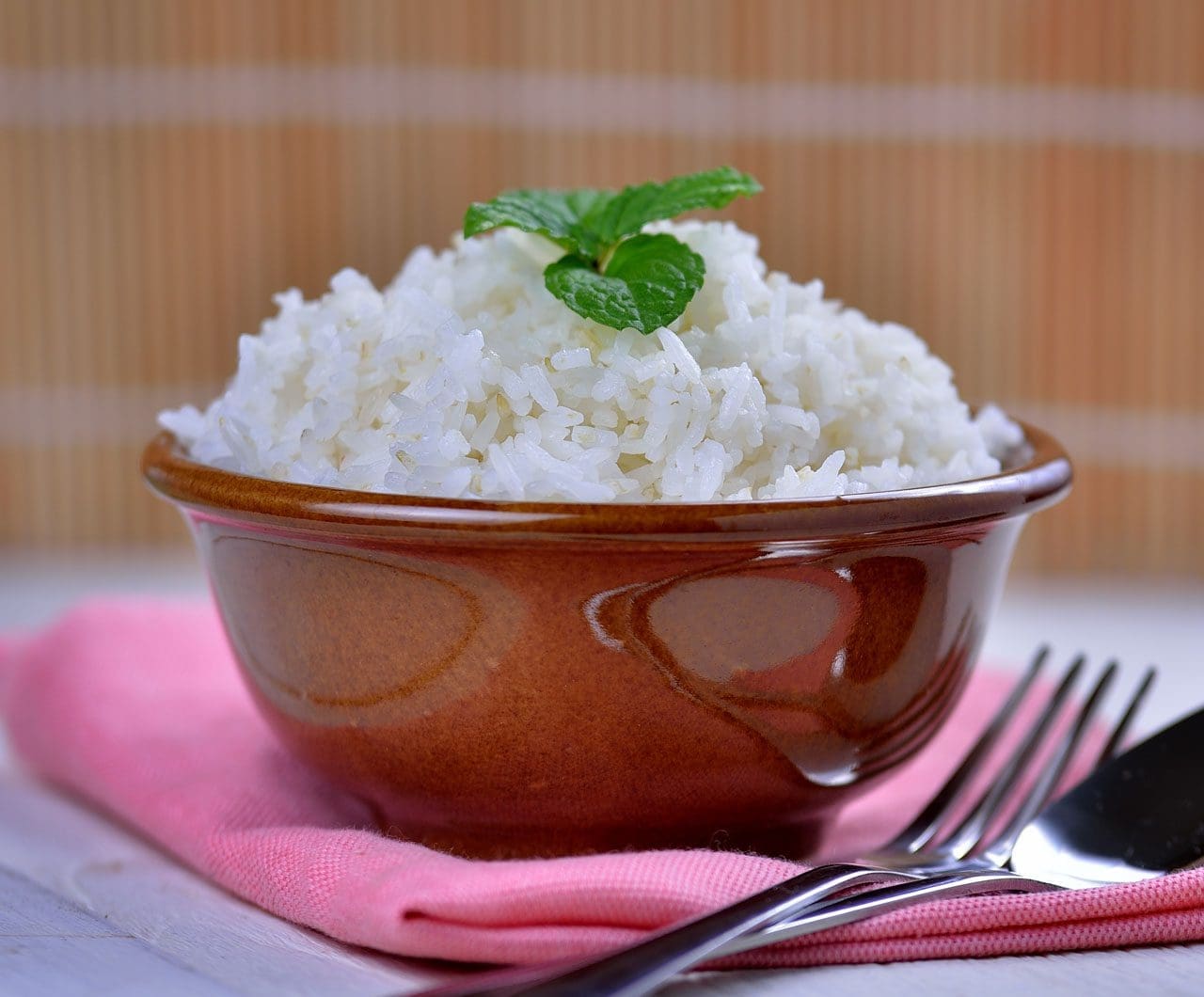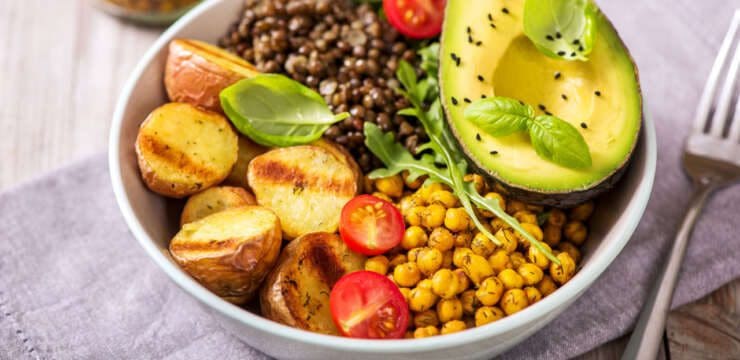
With the summer heatwave blasting through, some individuals can experience digestive health problems. The relationship between the temperature outside and the temperature in the body translates to the digestive system. As the heat rises, it can make the digestive system slow down and become weakened feeling bloated, nauseated, and tired. The body’s balance may feel off because the body lowers its internal temperature to protect itself. Individuals must be careful not to overload themselves with the wrong foods. One way to avoid problems and maintain digestion working smoothly is to eat lighter, eat smaller portions for each meal, and eat easily digestible foods. Doing this will allow the body will feel cooler, and maintain alertness and energy throughout the hot day.

Table of Contents
Easily Digestible Foods
Heat-related health issues can include:
- Loss of appetite
- Heartburn
- Acid buildup
- Abdominal pain
- Constipation
- Gastroenteritis
- Diarrhea
- Irritable bowel syndrome (IBS)
- Dehydration
- Heat exhaustion
- Stroke
The objective is not to skip meals but to eat regular meals, just smaller and easily digestible ones. Foods low in fiber tend to be easy to digest and can help the body feel better.
White Rice
- White rice is low in fat and fiber, making it easy on the stomach and easy to digest.
- It is not associated with any gastrointestinal issues and is considered a safe starch because it is an easy source of carbohydrates that provides instant energy.
- To digest rice even more easily, eat it by itself or pair it with foods low in fat.
- Certain foods that are high in fat, like vegetable oils, can take longer to digest and could cause discomfort.
- A 1/2 cup of cooked white rice:
- 210 calories
- 4g protein
- 0g fat
- 49g carbohydrates
- 1g fiber
Bananas
- Ripe bananas are an easily digestible fruit that only contains a moderate amount of fiber.
- They are associated with improvements in both constipation and diarrhea,
- Individuals with a variety of digestive issues may experience relief when incorporating bananas into their diets.
- Cooking bananas makes them even easier to digest as it makes certain nutrients easier to absorb.
- Make sure the bananas are ripe enough.
- Unripe bananas can be more difficult to digest.
- 1 medium raw/ripe banana:
- 105 calories
- 1.3g protein
- 0.4g fat
- 27g carbohydrates
- 3g fiber
Applesauce
- Although made from apples, applesauce is low in fiber and a great source of vitamin C.
- Cooked, canned, or processed fruits tend to be lower in fiber and easier to digest.
- Applesauce is recommended to calm a variety of stomach-related ailments like constipation, diarrhea, and gastroparesis.
- A 4-ounce serving of applesauce:
- 90 calories
- 0g protein
- 0g fat
- 22g carbohydrates
- 2g fiber
White Bread
- Plain white bread is low in fiber and easier to digest than bread made with whole-grain wheat bread.
- It is often fortified with nutrients including folic acid, B vitamins, vitamin D3, and more.
- Try plain toast for breakfast
- Use low-fat fillings for an easily digestible sandwich for lunch or dinner.
- 2 slices of plain white bread:
- 150 calories
- 4g protein
- 28g carbohydrates
- 2g fat
- 1g fiber
Chicken and Turkey
- Lean proteins low in fat like chicken breast and turkey are easy to digest.
- Individuals experiencing digestive problems are recommended to consume lean protein over fattier red meats.
- A 3-ounce serving of skinless, boneless chicken breast:
- 128 calories
- 26g protein
- 2.7g fat
- 0g carbohydrates
- 0g fiber
Sweet Potatoes
- Cooked potatoes of all varieties are examples of easily digestible foods.
- Sweet potatoes are gentle on the digestive tract because they are mostly insoluble fiber, which speeds up digestion and increases regularity.
- To make potatoes easier to digest, remove the skins and mash the inside.
- Removing the skins decreases the fiber content, and mashing them makes digestion easier.
- 1 medium sweet potato that is cooked and peeled:
- 135 calories
- 3g protein
- 0.2g fat
- 31g carbohydrates
- 5g fiber
Other recommendations that could help stimulate digestion include drinking more water, getting more sleep, reducing stress levels, and exercising.
The Healing Diet
References
Howard, Sally, and Geetanjali Krishna. “How hot weather kills: the rising public health dangers of extreme heat.” BMJ (Clinical research ed.) vol. 378 o1741. 14 Jul. 2022, doi:10.1136/bmj.o1741
Kong, Fanbin, et al. “Physical changes in white and brown rice during simulated gastric digestion.” Journal of food science vol. 76,6 (2011): E450-7. doi:10.1111/j.1750-3841.2011.02271.x
Nguyen, Hoang Chinh et al. “Bioactive Compounds, Antioxidants, and Health Benefits of Sweet Potato Leaves.” Molecules (Basel, Switzerland) vol. 26,7 1820. 24 Mar. 2021, doi:10.3390/molecules26071820
Remes-Troche, José María. “Too hot” or “too cold”: effects of meal temperature on gastric function.” Digestive diseases and sciences vol. 58,9 (2013): 2439-40. doi:10.1007/s10620-013-2789-4
Salfi, Salvatore F, and Karyn Holt. “The role of probiotics in diarrheal management.” Holistic nursing practice vol. 26,3 (2012): 142-9. doi:10.1097/HNP.0b013e31824ef5a3
Singh, Balwinder, et al. “Bioactive compounds in banana and their associated health benefits – A review.” Food Chemistry vol. 206 (2016): 1-11. doi:10.1016/j.foodchem.2016.03.033
Disclaimers
Professional Scope of Practice *
The information herein on "Easily Digestible Foods" is not intended to replace a one-on-one relationship with a qualified health care professional or licensed physician and is not medical advice. We encourage you to make healthcare decisions based on your research and partnership with a qualified healthcare professional.
Blog Information & Scope Discussions
Welcome to El Paso's wellness blog, where Dr. Alex Jimenez, DC, FNP-C, a board-certified Family Practice Nurse Practitioner (FNP-C) and Chiropractor (DC), presents insights on how our team is dedicated to holistic healing and personalized care. Our practice aligns with evidence-based treatment protocols inspired by integrative medicine principles, similar to those found on dralexjimenez.com, focusing on restoring health naturally for patients of all ages.
Our areas of chiropractic practice include Wellness & Nutrition, Chronic Pain, Personal Injury, Auto Accident Care, Work Injuries, Back Injury, Low Back Pain, Neck Pain, Migraine Headaches, Sports Injuries, Severe Sciatica, Scoliosis, Complex Herniated Discs, Fibromyalgia, Chronic Pain, Complex Injuries, Stress Management, Functional Medicine Treatments, and in-scope care protocols.
Our information scope is limited to chiropractic, musculoskeletal, physical medicine, wellness, contributing etiological viscerosomatic disturbances within clinical presentations, associated somato-visceral reflex clinical dynamics, subluxation complexes, sensitive health issues, and functional medicine articles, topics, and discussions.
We provide and present clinical collaboration with specialists from various disciplines. Each specialist is governed by their professional scope of practice and their jurisdiction of licensure. We use functional health & wellness protocols to treat and support care for the injuries or disorders of the musculoskeletal system.
Our videos, posts, topics, subjects, and insights cover clinical matters, issues, and topics that relate to and directly or indirectly support our clinical scope of practice.*
Our office has reasonably attempted to provide supportive citations and has identified the relevant research studies or studies supporting our posts. We provide copies of supporting research studies available to regulatory boards and the public upon request.
We understand that we cover matters that require an additional explanation of how they may assist in a particular care plan or treatment protocol; therefore, to discuss the subject matter above further, please feel free to ask Dr. Alex Jimenez, DC, APRN, FNP-BC, or contact us at 915-850-0900.
We are here to help you and your family.
Blessings
Dr. Alex Jimenez DC, MSACP, APRN, FNP-BC*, CCST, IFMCP, CFMP, ATN
email: coach@elpasofunctionalmedicine.com
Licensed as a Doctor of Chiropractic (DC) in Texas & New Mexico*
Texas DC License # TX5807
New Mexico DC License # NM-DC2182
Licensed as a Registered Nurse (RN*) in Texas & Multistate
Texas RN License # 1191402
ANCC FNP-BC: Board Certified Nurse Practitioner*
Compact Status: Multi-State License: Authorized to Practice in 40 States*
Graduate with Honors: ICHS: MSN-FNP (Family Nurse Practitioner Program)
Degree Granted. Master's in Family Practice MSN Diploma (Cum Laude)
Dr. Alex Jimenez, DC, APRN, FNP-BC*, CFMP, IFMCP, ATN, CCST
My Digital Business Card






